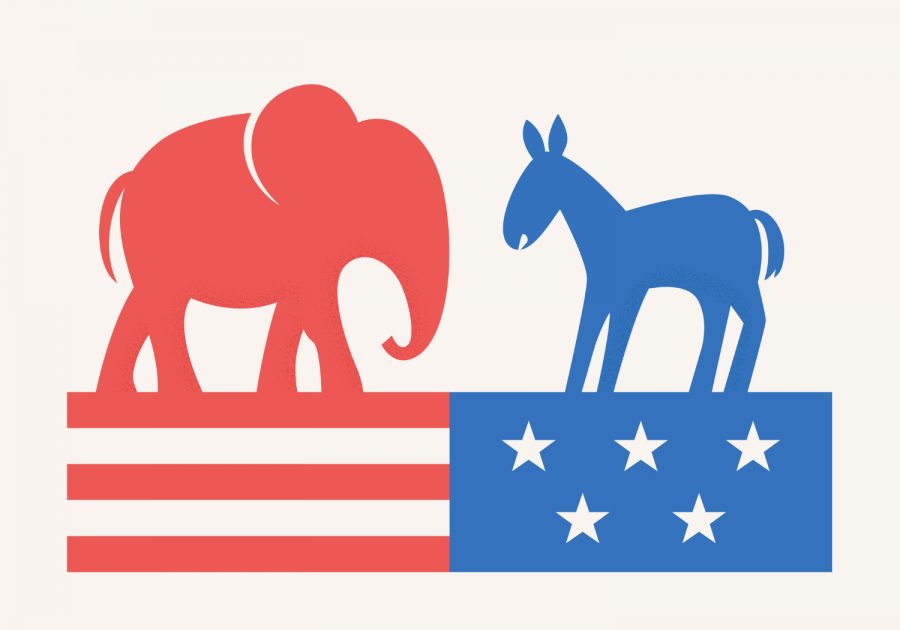If you consume media of any kind these days, it’s difficult to ignore political ads.
Whether it’s during a routine commercial break or before a YouTube video, political ads are a constant reminder of the upcoming election at both the local and national levels. And unfortunately for many, they’re everywhere.
Just recently, while watching Monday Night Football, I was forced to watch multiple ads for local representatives, as well as national ads for both presidential candidates between timeouts and quarter breaks.
While watching these ads, I noticed — especially in state and local campaigns — that candidates from both sides of the aisle seemed awkward, forceful, and downright strange in their speech patterns, body language, and overall messaging.
Now, I recognize that politicians aren’t actors. However, after being in Iowa during both a midterm and now a presidential election cycle, I’ve realized that many of these local ads for political figures are poorly made, oddly phrased, and just plain weird.
Between the way politicians present their arguments to their actual opinions on specific policies, many of the individuals running for local and state leadership positions seem to focus on the wrong ideas. Instead of worrying about the real problems at hand, many attempt to antagonize both the far right, and the far left instead to create a dialogue around the produced ad itself, instead about the issues voters actually care about.
One example of this phenomenon is Iowa’s 1st District incumbent Rep. Mariannette Miller-Meeks, who released a political ad this year talking about Christina Bohannon’s “plan” to allow transgender Iowa athletes to compete in women’s sports. In the video, Miller-Meeks claims Bohannon is “too extreme,” while praising women in sports and showing a youth girls’ soccer team practicing in the background.
Regardless of one’s political stance, the ad came off as corny, fake, and ironic, considering Miller-Meeks supports women in sports but not in issues like abortion and healthcare.
This ad is one of the tamer pieces of media released by both candidates in Iowa’s 1st district, but it does begin to illustrate the strange and unusual ways politicians try to sway voters through modern political marketing.
This concept of odd and forced political campaigns isn’t unique to Iowa. In the 2022 Louisiana Senate race, Republican candidate John Neely Kennedy produced an ad advocating for harsher punishment for violent criminals. The ad attacked “woke leaders” that he claimed blamed police and the broken justice system instead of those responsible for violent crimes.
Everything about the ad read like a typical right-wing scare tactic supporting “law and order” in the state of Louisiana. But the ad took a bizarre turn near the latter half of the video when Kennedy said, “If you hate cops just because they’re cops, the next time you get in trouble, call a crackhead.”
This snippet exploded on social media, becoming famous among political pundits and Gen Z voters. Despite the odd and amusing nature of the ad being, Kennedy was reelected to the Senate.
Awkward media aren’t exclusive to conservatives. During the 2022 midterms in Georgia, Democratic Sen. Raphael Warnock released an ad standing knee-deep in peanuts. In the video, Warnock talked about Georgia producing over “half of America’s peanuts” and his work deregulating foreign trade to help U.S. farmers sell their goods overseas.
As peanuts are dumped around him, Warnock emphasizes his commitment to Georgia farmers, saying he’d “do anything if it means helping Georgia.”
While the ad aimed to showcase Warnock’s interest in helping Georgia farmers and its large agricultural sector, it came across as cheesy and strange, especially since most of the speaking was done by a peanut farmer, not Warnock himself.
These ads, strange as they may be, highlight larger issues in political elections nationwide. But the tangible decisions that impact real voters living in these areas often go unaddressed. Instead, big-budget ads dominate the conversation, steering focus toward what politicians want to discuss rather than what voters actually care about. This underscores ongoing issues in the American political system that are likely to worsen as the modern media landscape continues to evolve.



